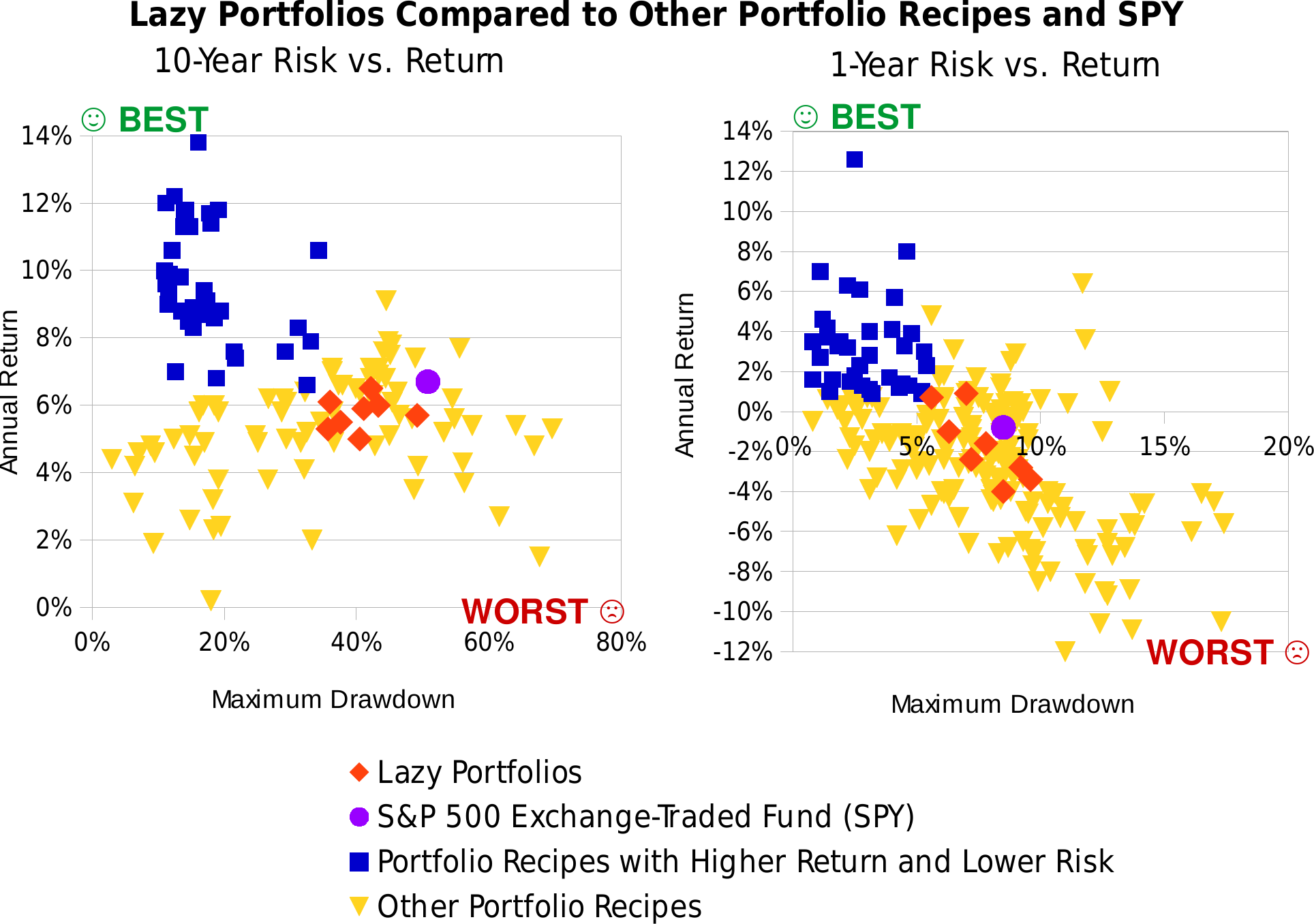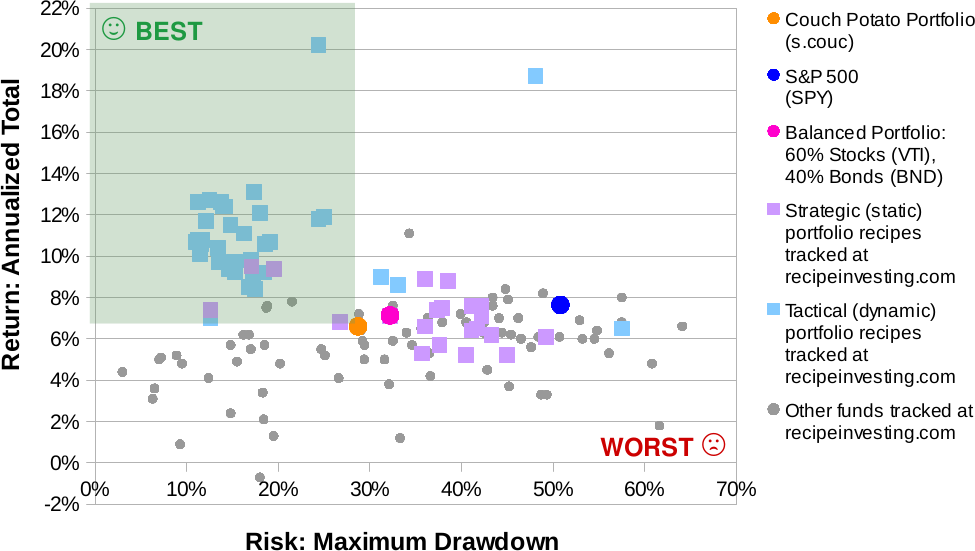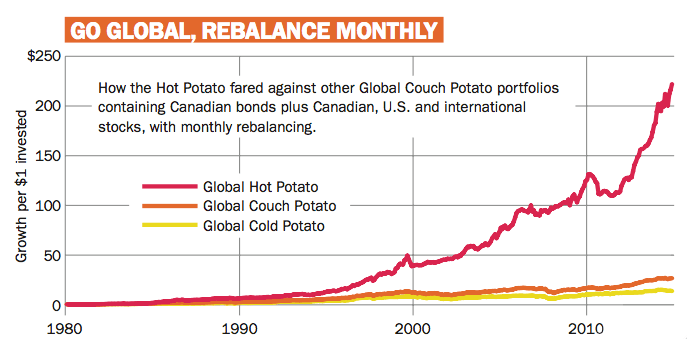The couch potato portfolio is an indexing strategy that requires only annual monitoring and rebalancing but offers significant returns in the long run.
Couch potato portfolio performance.
Investment performance figures for the global couch potato portfolio by annual nominal value 1 year return and annualized rate of return.
Here is how you build the couch potato portfolio.
Scott burns couch potato and other 8 portfolios can be built with 2 10 etfs.
50 00 us total stock market vti 50 00 tips vtip.
Return scatterplot using the 10 year maximum drawdown to measure risk.
Couch potato portfolio results after inflation adjusted withdrawals for different time periods.
None of the products we use to build our couch potato portfolios has been around for 20 years.
Investment performance figures for the classic couch potato portfolio by annual nominal value annualized rate of return and annual return.
Your typical balanced mutual fund.
They are is exposed to between 20 to 80 equities and 20 to 80 bonds including tips.
Scott burns is the creator of couch potato investing and a personal finance columnist with decades of experience.
From 1986 to 2001 the sophisticated couch potato strategy returned 12 3.
Couch potato portfolios invest equally in two.
If you can fog a mirror and divide by the number 2 or make a margarita he ll show you how to get better investment results and a better retirement with little or no effort.
The dividend yield is 0 89.
For the past 10 years the couch potato portfolio has returned 8 56 with a standard deviation of 9 86.
They are medium risk and low risk portfolios.
Create a risk vs.
The plain 50 50 couch potato portfolio returned 10 37 between 1991 and 2001.
The global couch potato easily beat global balanced funds.
The average balanced fund returned less in the same period 9 45.
Last year it returned 19 48.
Starting with a 100 000 investment and withdrawing an initial 4 000 a year that is adjusted upward for inflation each year this table shows the dollar value of the portfolio at the end of each year.
Identify performance winners based on total return by comparing returns to the couch potato portfolio.
If you invested 100 in the classic couch potato.









